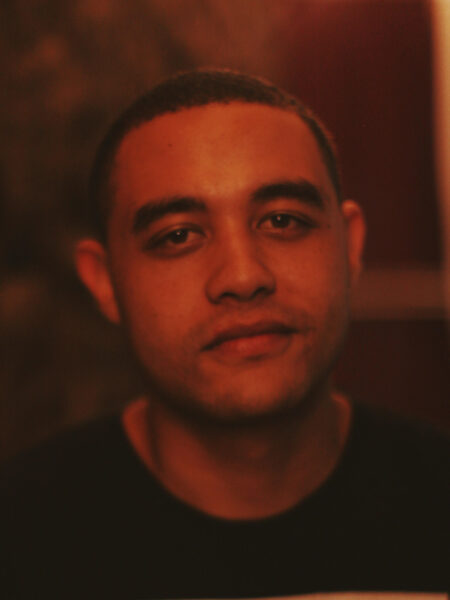
For our Alumni Q&A series, we caught up with Noa Gardner MFA ’20 about his new play The Staircase, authenticity in language and the importance of reading to writers.
Your new play, The Staircase, is your first play to have been produced. What does it mean to you as a playwright to see your work come to life on stage?
It’s such a great opportunity for people to see the kind of theatre that I want to put out into the world. I’ve worked hard on this script and I think it will mean a lot to a lot of people and I think it will do the thing I want it to do for people. This play is a love letter to a lot of people. It’s a love letter to Hawaii. It’s a love letter to my professors that taught me how to do this. It’s a love letter to my parents. Those are the people I’m most excited to share it with.
The Staircase is written in a mix of English, Hawaiian and Hawaiian Creole. What does it mean for you to be able to showcase Hawaiian language and culture on stage?
I’ve had experiences in the past where I’ve seen plays or movies set in Hawaii where the pidgin is played for comedy. It’s like “look how funny us guys talk over here.” That audiences were laughing at the way we talk and not necessarily for what was actually being said. When it’s done that way, the laughter then becomes hurtful.
The other thing about pidgin and Hawaiian is that Hawaii people know when it’s not authentic. It is immediately clear and if it’s not spoken in the right way, or if it’s too put-on or too over-the-top, it’s too cringey to even listen to. You lose a trust with your audience when language isn’t properly taken care of.
Hawaii folks, we already understand the beauty of Hawaiian language and pidgin and I think it will mean a great deal to a Hawaiian or local person that comes and sees my plays that can hear the authenticity in the way it’s being spoken and hopefully they can see themselves reflected in the work.
You were a recipient of Center Theatre Group’s Edgerton Award Last Year. What did that mean to you and how did it contribute to the evolution of your play?
Through this production, I’m getting an education about how much money it costs to put on a play and to put it on correctly. Three of the actors that are cast in this play are from Hawai’i. I have a kumu hula that is advising the play as a cultural consultant. There is a live musician that will be playing music and underscoring the piece. I have an extra week of rehearsals on the stage where it’s going to be performed. A lot of these things could not have been possible if not for the support of South Coast Rep and with the support of Center Theatre Group’s Edgerton Award.
What do you miss about grad school, SDA specifically?
The thing I enjoyed most about grad school was reading and discussing plays with other writers. I miss the syllabi of all the professors in SDA and what plays they wanted us to know. We read some plays that have really stuck with me and that I think about all the time and that I try to reference in the plays I write. Hawaii is not a super theatre-y place so I also really miss out on being able to talk about playwriting with other playwrights.
Was there a class or professor that was particularly meaningful or influential during your time at the School? Why?
I enjoyed my time with all of my professors and I would like to name them here: Velina Hasu Houston, Oliver J. Mayer, Paula Cizmar, Luis Alfaro and Boni Alvarez. All of them really challenged me on all aspects of playwriting. Playwriting is a craft and they are all masters of the form so it was brilliant to learn from them and to learn about how to think about playwriting, how to wield this craft as effectively as possible.
Were you able to collaborate with any of the other degree programs while at SDA?
I was particularly fond of the actors in the graduate program at SDA and I’ve been following their careers post-USC. I am certain I am going to see a lot of them at the Oscars, winning awards and I hope I get a plus-one. I did a lot of collaboration while I was at USC with the actors and they were so generous. They were always happy to read my plays and participate in readings and things like that.
What advice would you give to current students hoping to make a career in dramatic writing?
You don’t need to write every day to be a writer. But you do need to read. And you have to read all kinds of books, and all kinds of plays, and you need to go to the movies. You need to figure out what kinds of things turn you on and then try to write that. People want to see how you see the world.